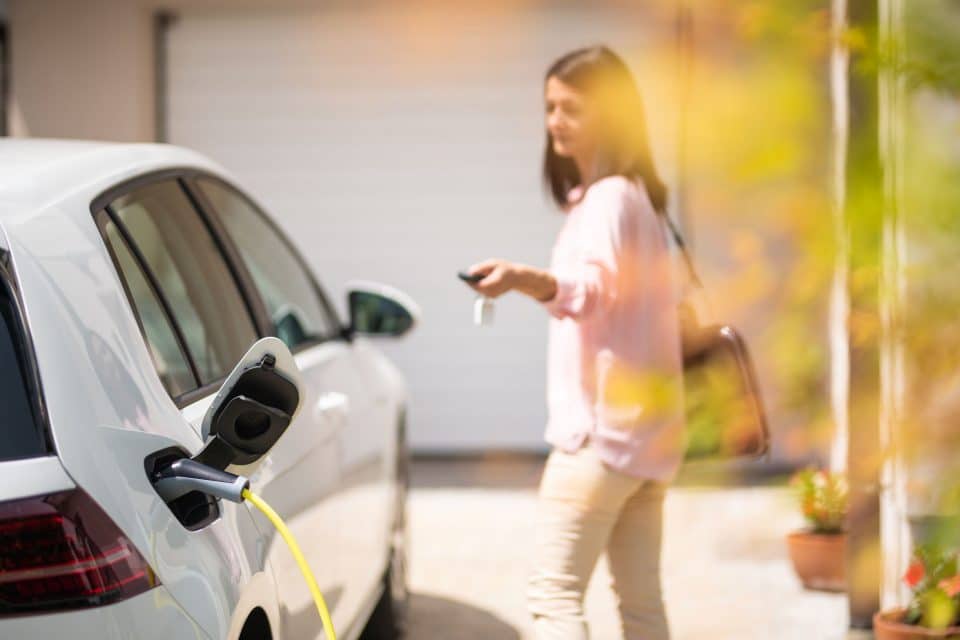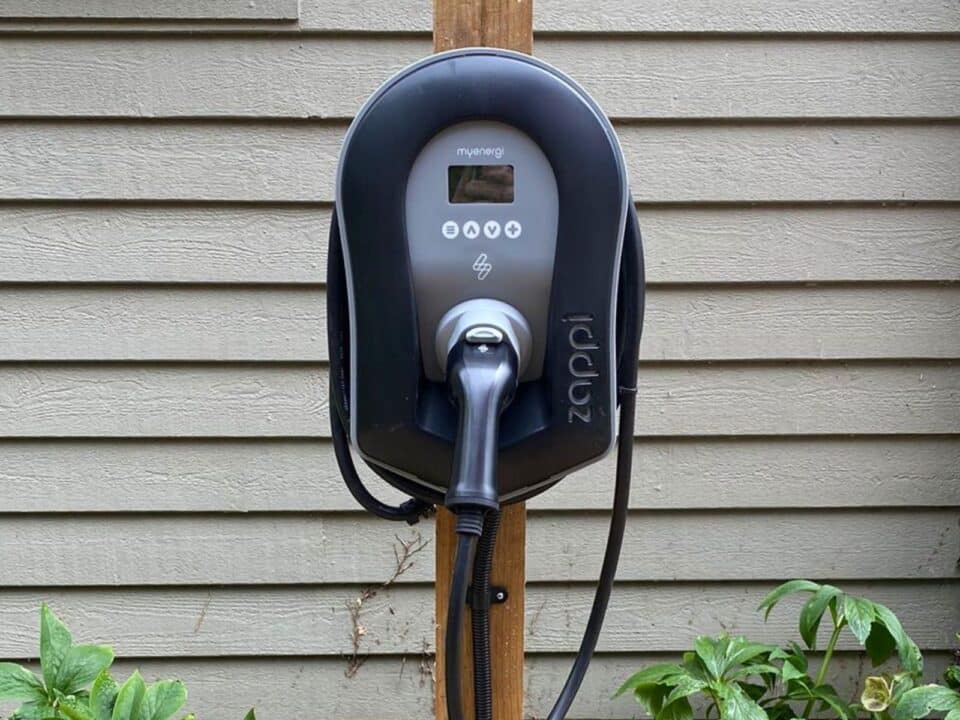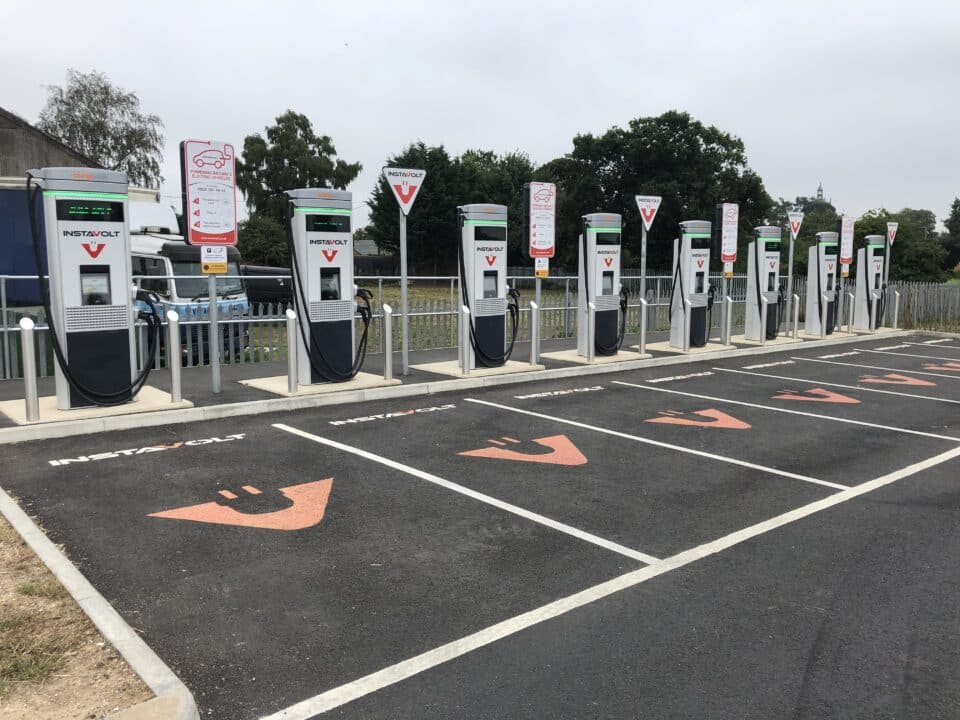Electric vehicle charging speeds are generally categorised as slow, fast, and rapid charging.
Below, we explain the differences between these charging speeds for both at-home and workplace charging:
Slow Charging
At Home: Slow charging typically involves utilising a standard household electrical socket (often referred to as a 3-pin or Type G socket) to charge your EV. This is the slowest charging option and is best suited for overnight charging when there is ample time to charge your vehicle. It provides a low charging rate, usually around 2-3 kW.
At Work: Slow charging at the workplace is less common but may still be an option if your workplace has designated EV charging points with standard sockets. However, it’s not ideal for topping up during working hours and is better suited for extended-duration charging.
- Standard Plug (3 Pin): 2.3kW | 8 miles in 1 hour.
- Type 1 Connector (5 pin): 3.7kW | 12.5 miles in 1 hour.

Fast Charging
At Home: Fast charging at home typically involves installing a dedicated wall-mounted charging unit with a higher power output, usually ranging from 7 kW to 22 kW. This allows for faster charging compared to a standard household socket and is suitable for overnight or daytime charging.
At Work: Fast charging at the workplace is a popular choice for employees and visitors who need to charge their EVs during the working day. Many workplaces have installed charging stations with power outputs in the range of 7 kW to 22 kW.
- Type 1 Connector (5 pin): 3.7kW – 7kW | 12.5 – 25 miles in 1 hour.
- Type 2 Connector (7 pin): 3.7kW, 7kW and 22kW | 12.5, 25 and 75 miles (three phase) in 1 hour.
Please note: In the UK, three-phase power is uncommon in standard homes but can be found in certain commercial buildings.

Rapid Charging (DC)
On The Road: Rapid chargers are typically found at motorway services or locations close to main routes. These chargers are significantly faster, with power outputs ranging from 50 kW to 350 kW or even higher. They can provide a substantial charge in a relatively short time.
At Home: Rapid charging at home is uncommon due to its higher cost and complexity. It typically requires more extensive electrical infrastructure and equipment.
At Work: Rapid charging at the workplace is less common but can be advantageous for employees who require very fast charging.
- CHAdeMo: 50kW | 75 miles in 30 minutes.
- CCS: 50kW, 150kW and 350kW | 75, 225, and 525 miles in 30 minutes.
- Type 2: 150kW – 250kW | 180 – 500 miles in 30 minutes.
DC charging is not suitable for all vehicle- models (Check if yours is suitable here: Electric Vehicle Guides | Pod Point)
Some cars only have a lower charging capacity, sometimes as low as 3kw, however it is ok to use a higher power supply, as the cable will just max out at the car’s limit.
